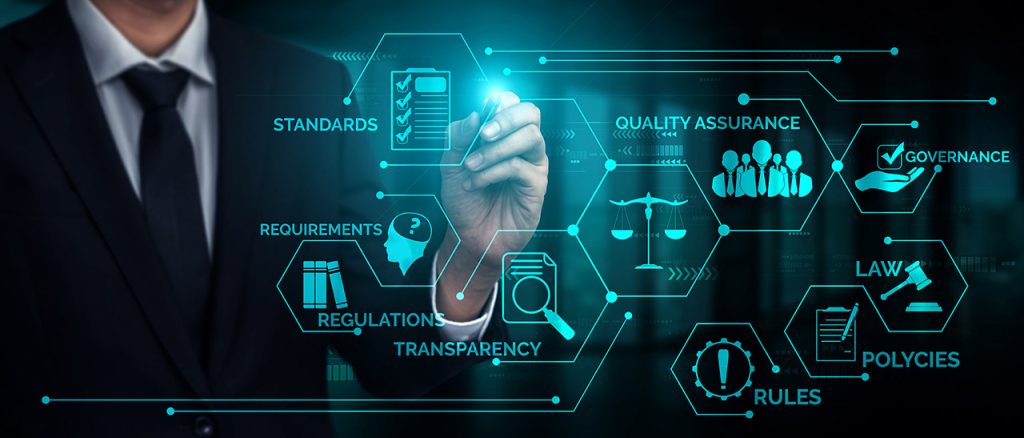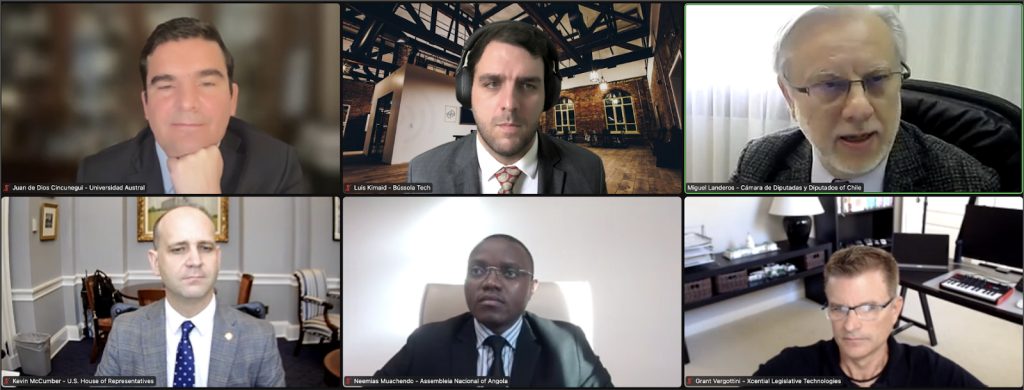“The stories I’d heard were about literally typing up the documents, and then making changes to the documents by cutting out little pieces of paper and taping that over the words that needed to change,” says Jery Payne, a senior attorney of 24 years at the Colorado Office of Legislative Services.
Forty years ago, for lawmaking, MS Word made the leap from typewriter to a word processor possible.
By and large, word processing software is the primary tool in the legislative drafting and amending stages for local-level ordinances and resolutions.
Macros help to automate regularly used tasks via a series of inputs and instructions bundled together as a single command. Macros are manually preset and can take a handful of seconds to hours depending on the complexity of the commands.
Rounding out the ecosystem of software are external systems stitched together to create an ad hoc workflow. This hodgepodge of systems are used to help attorneys and city clerks move local legislation from idea to codification.
While it works, this framework is not ideal from a usability and efficiency perspective — especially in 2023.
Attorneys and city clerks deserve a purpose-built solution that provides accuracy, efficiency, and usability. Municipal legislation is important work.
Enter LegisWeb.
Xcential Legislative Technologies has combined over 20 years of legislative software development experience to create LegisWeb. LegisWeb is specialized software that eliminates the need for a patchwork of systems, having developed a one-stop tool for legislative drafting for local-level governments and rule-making bodies.
Trusted by governments around the world
Since 2002, the team at Xcential has been working to ensure the successful system modernization of legislatures and other rule-making bodies around the world, at all levels.
“Our goal is to help governments make laws with greater efficiency, with more precision and accuracy, and much more transparency for citizens,” said Grant Vergottini, Co-Founder and CEO at Xcential.
The company initiated development of LegisWeb in 2022 and completed beta testing earlier this summer.
Designed specifically for drafting municipal and county ordinances, resolutions and by-laws, the cloud-based tool is a direct counterpart to Xcential’s enterprise-grade software solution, LegisPro. LegisPro is currently used by federal and state-level governments around the world, including the U.S. House.
With its game-changing digital-first approach, LegisWeb combines sophisticated data management capabilities with the ease of using a word processor to deliver automation, precision, and better organization to the ordinance drafting process.
Digital transformation initiatives have been ongoing in governments around the world, at all levels. Following the pandemic, governments seek opportunities to scale operations quickly and efficiently, despite having less resources at their disposal.
For governments then, a pivotal objective is to modernize its legacy systems. Relying on software technology workarounds and a patchwork of software and systems is not a sustainable or effective approach to lawmaking in the digital age.
Specialized software built for legislative drafting
Word 1.0 was launched in 1983.
The first ever version of Microsoft Word, called Multi-Tool Word, was developed by former Xerox programmers, Charles Simonyi and Richard Brodie.
For years, Word and such similar word processing tools have formed the foundation — the first step — in digitizing drafting and amending legislation and legislative documents.
In many cases, it creates a motley collection of document versioning and various changes. The more collaborative the process, the more complex and difficult to track.
City and county attorneys and clerks have told stories of poring over and meticulously sorting, then implementing a myriad of comments and suggestions to new legislation. Department heads, council and commission members and others will offer new language, deletions and other changes — which can all be hard to track in a typical Word document. So much so it added hours to the lawmaking process, not to mention increasing the chances for errors and a waste of precious resources.
And that’s after – as some have told us – the occasional confusion about whether the document has been drafted with the proper template.
With LegisWeb, users can start their work with the confidence they’ve loaded up the approved resolution or ordinance template – and that they’re working from the most current code, thanks to LegisWeb’s convenient import tools. Then they can draft and amend local ordinances in an intuitive editor that can export the final version to codifiers with a single click.
Drafters also have quick and convenient access to current legislation and ordinances, available by means of an error-free upload or as pre-loaded templates.
As well, common and repeatable tasks like amending or clause insertions are available via drag-and-drop elements, while citations and paragraph and page numbering occur automatically.
From templates to time-saving automations like code citations, page formatting, and document versioning, LegisWeb is groundbreaking software for attorneys and city clerks operating at the local level of government.
There are a slew of other purposefully crafted features worth checking out.
Visit the LegisWeb page here to get started with your 30-day free trial. Or feel free to contact us directly to set up a one-on-one meeting and demonstration of LegisWeb.



